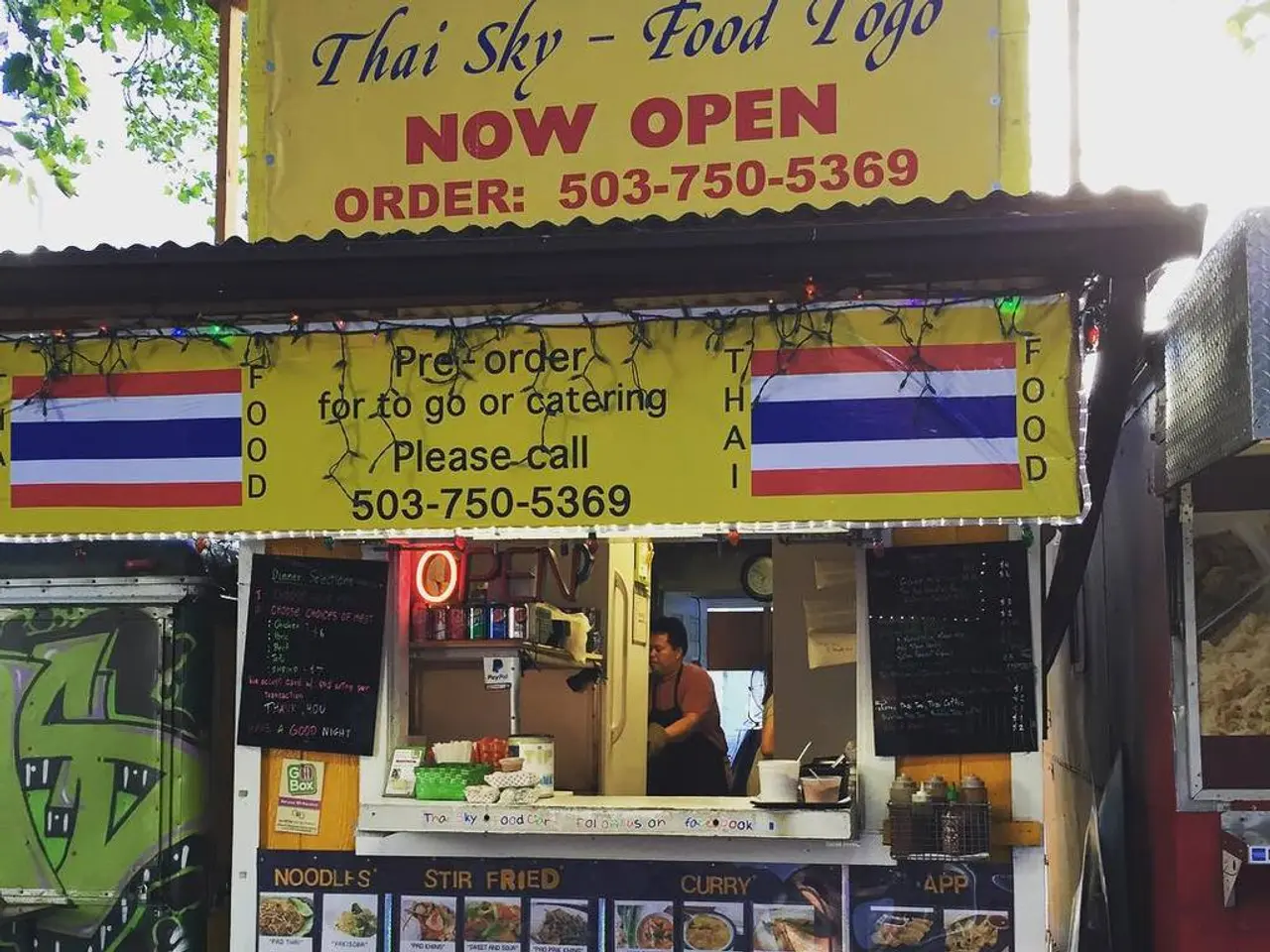Establishments governed by the Gaststätten Association have stated...
DEHOGA Rhineland-Palatinate Proposes Reusable Solutions to Reduce Single-Use Packaging Waste
In a bid to promote sustainability and combat single-use packaging waste, the President of DEHOGA Rhineland-Palatinate, Gereon Haumann, has proposed a practical and scalable approach. This approach, which was tested in Mainz and Wiesbaden last year as part of the "Reusable Model City" project, encourages businesses, particularly those in the hospitality and food sectors, to switch from single-use packaging to reusable alternatives.
The project, which offers reusable cups that can be returned at shops or 40 public return stations, aims to make single-use packaging unwanted and eventually make the packaging tax obsolete. Haumann believes that for a sustainable change, reusable solutions must become more convenient and cheaper for guests than single-use.
The key, according to Haumann, is a uniform, nationwide standardized reusable system that is easy to use for all users. The project implements reusable systems for take-away packaging, such as reusable containers and cups, and promotes the use of deposit-return schemes to incentivize the return and reuse of packaging.
DEHOGA Rhineland-Palatinate also supports local establishments in adopting sustainable practices that minimize waste production and maximize reuse. The association provides guidance and resources to help businesses transition to reusable packaging solutions effectively.
The "Reusable Model City" project, which saw the participation of 11 businesses with 85 dispensing points, has demonstrated that a networked, competition-neutral infrastructure can conserve resources, reduce waste, and relieve businesses. In fact, 87% of the cups were returned, mostly at the same business or branch.
Haumann suggests that such approaches are the key to a sustainable future, not new taxes. The association rejects a municipal packaging tax in Mainz, citing it as an additional bureaucracy. They raise five criticisms against a municipal packaging tax, claiming that it does not guarantee waste reduction, does not genuinely encourage reusability, and brings economic disadvantages, particularly for smaller businesses.
Instead, DEHOGA Rhineland-Palatinate calls for politics, municipalities, and the economy to jointly develop and implement practical reusable solutions. They propose attractive and widely available reusable systems as better alternatives to a municipal packaging tax.
This approach, if implemented nationwide, could significantly cut down on single-use packaging waste in the region, moving us one step closer to a sustainable future.
In the pursuit of sustainability and waste reduction, the proposal by DEHOGA Rhineland-Palatinate encourages businesses in the retail and hospitality sectors, particularly those in the food industry, to switch from single-use packaging to reusable alternatives. To facilitate this, DEHOGA promotes a uniform, nationwide standardized reusable system that is easy to use for all users, aiming to make reusable solutions more convenient and economically viable than single-use options.




